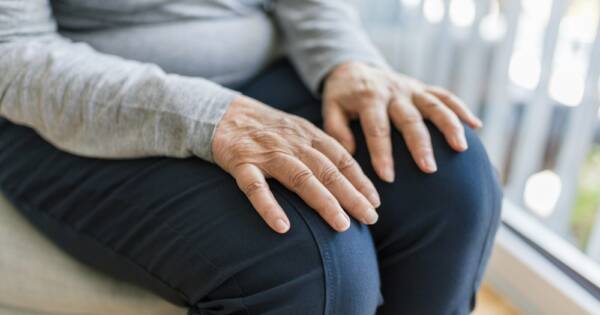Skin cancer is one of the most common forms of cancer, yet it’s also among the most preventable when caught early. Learning how to recognize the warning signs and understanding your personal risk can make all the difference in protecting your health. From monitoring changes in moles to practicing smart sun safety, taking proactive steps helps reduce risk and ensures timely treatment. Early detection is truly the key to prevention and peace of mind.
What Is Skin Cancer?
Skin cancer occurs when abnormal cells grow uncontrollably in the skin’s layers. The most common types include:
- Basal cell carcinoma (BCC): Often appears as pearly bumps or pinkish patches.
- Squamous cell carcinoma (SCC): May present as scaly, red lesions or sores that don’t heal.
- Melanoma: The most dangerous form, often identified by irregular moles or dark, changing spots on the skin.
While basal and squamous cell carcinomas tend to grow slowly and are highly treatable, melanoma can spread more aggressively, making early detection critical.
Recognizing the Signs of Skin Cancer
Knowing what to look for can make all the difference when it comes to early detection. While not every spot or mole is dangerous, it’s essential to monitor your skin regularly for changes. Consider the following guidelines:
The ABCDE Rule for Moles
Dermatologists often recommend the ABCDE rule as a helpful tool:
- A — Asymmetry: If one half of a mole doesn’t match the other, it could be a warning sign.
- B — Border: Look for edges that are uneven, scalloped, or poorly defined.
- C — Color: Be cautious of moles with multiple colors or shades, including black, brown, white, or blue.
- D — Diameter: While some melanomas are small, any spot larger than 6mm (about the size of a pencil eraser) warrants attention.
- E — Evolving: Any mole or spot that changes in size, shape, or color should be evaluated.
Other Symptoms to Watch For
- A sore that doesn’t heal after several weeks.
- Itchy, tender, or painful areas of skin.
- New growths or spots that appear suddenly.
- Spots that ooze, bleed, or crust over.
Keep in mind, not all skin cancers present in the same way. If something seems unusual to you, consider consulting a healthcare provider.
Prevention Strategies: Protecting Your Skin Every Day
While no method can entirely eliminate the risk of skin cancer, certain habits can significantly reduce your chances. Prevention often starts with protecting your skin from harmful ultraviolet (UV) radiation, which is a primary risk factor for all skin cancers.
Sun Protection Basics
- Use Sunscreen: Apply a broad-spectrum sunscreen with an SPF of at least 30 every day, even during overcast weather. Reapply every two hours if you’re outdoors.
- Wear Protective Clothing: Hats with wide brims, long-sleeved shirts, and sunglasses with UV protection can shield your skin effectively.
- Seek Shade: Avoid direct sun exposure during peak hours (10 a.m. to 4 p.m.) when UV rays are strongest.
- Be Mindful of Reflected Sunlight: Water, sand, and snow can intensify UV exposure, so take extra precautions in these environments.
Other Preventative Tips
- Avoid Tanning Beds: Artificial UV rays from tanning beds are linked to a higher risk of skin cancer.
- Perform Regular Skin Checks: Conduct monthly self-examinations of your skin to identify any changes early. Enlist the help of a partner to check hard-to-see areas like your back or scalp.
- Schedule Professional Screenings: A dermatologist can perform a thorough skin exam and address any concerns.
Who Is Most at Risk?
While anyone can develop skin cancer, some factors may increase your risk. These include:
- Fair Skin: Individuals with lighter skin tones, freckles, or a history of sunburns are at higher risk.
- Family History: If you have close relatives who’ve had skin cancer, your chances may be elevated.
- Excessive UV Exposure: Spending significant time in the sun or using tanning beds frequently can heighten your risk.
- Weakened Immune System: Conditions or medications that suppress the immune system can make you more vulnerable.
Even if you don’t fall into these categories, it’s still important to stay vigilant about prevention and detection.
When to See a Dermatologist
If you notice anything unusual on your skin, it’s always better to err on the side of caution. Dermatologists have the expertise to differentiate between benign spots and potential skin cancers. Many suspicious spots can be biopsied quickly and painlessly, with results helping guide the next steps.
In particular, you should prioritize a dermatologist visit if you notice:
- A spot or lesion that changes noticeably over time.
- Symptoms like persistent itching, tenderness, or bleeding.
- Moles or growths with multiple concerning characteristics, such as irregular borders and varied colors.
Small Steps, Big Impact
While the idea of skin cancer can be daunting, taking proactive steps today can lead to better outcomes tomorrow. By learning to recognize early warning signs, protecting your skin from UV damage, and consulting healthcare providers when necessary, you can empower yourself to reduce risks and address concerns early.
Remember, prevention is key, and vigilance can make a significant difference in your overall skin health. Start your journey to better skin health today by prioritizing awareness, protection, and regular check-ups. Your skin will thank you.




